61 top supply chain companies write to the Heads of Delegations to the Indian Ocean Tuna Commission, urging the IOTC to adopt an effective plan to rebuild overfished Indian Ocean yellowfin tuna stock, and condemning the IOTC for its inaction thus far.
A letter, written by the NGO Tuna Forum and signed by 61 supply chain companies, and addressed to the Heads of Delegation at the Indian Ocean Tuna Commission (IOTC), demands the IOTC to agree on measures to rebuild Indian Ocean yellowfin tuna at the 25th Session of the Commission on June 7th. Yellowfin tuna stocks are ‘consistently overfished’ – which means there is not enough left in the water, with ‘overfishing currently occurring’ – which means we are taking too much out of the water. The species is listed as ‘near threatened’ on the IUCN Red List and a number of independent bodies warning that the stock is on the brink of collapse.
The letter, which was sent to all IOTC delegates today on behalf of a number of highly influential companies – such as Tesco, Metro, Target and Publix – condemns the IOTC’s inaction in ensuring the stability of the tuna stock, reading:
“Given the consistent overfishing and overfished status of the Indian Ocean yellowfin tuna stock since 2015, it is imperative that the Indian Ocean Tuna Commission (IOTC) agree measures to rebuild the stock at the June meeting of the Commission. Despite the urgency of the situation, the Commission has not agreed on a rebuilding plan even after holding two meetings dedicated to this topic in the last six months. While Commission members delay, the risks to the Indian Ocean yellowfin tuna stock and the communities that depend on it, continue to grow.”
The concerned supply chain companies have urged the IOTC to adopt ‘without delay’ an effective and equitable recovery plan for yellowfin tuna, that replaces the interim measure in Resolution 19/01. Specifically, the letter reads that any measure adopted by IOTC must reduce fishing mortality to a level that will rebuild the stock of yellowfin tuna within the period of two generations.
The letter’s signatories all hold a significant stake in the yellowfin tuna stock, as organisations who source and supply tuna globally. Many of the signatories are Tuna Protection Alliance (TUPA) partners, participants of the Sustainable Fisheries Partnership’s (SFP) Global Longline Tuna Supply Chain Roundtable, FishWise market partners and Global Tuna Alliance (GTA) partners, who have committed to improving the sustainability and traceability of their own supply chains, and are dedicated to sourcing tuna from environmentally and socially responsible fisheries. The 61 companies hold significant purchasing power, and a number have stated that – if action is not taken to rebuild the Indian Ocean yellowfin tuna stock – they may review whether the stock meets their sourcing policies.
The urgency with which the signatories’ are demanding the IOTC to act cannot be understated, with the letter reading that ‘any further delay is unacceptable’.
The letter, along with logos of all the signatories, can be read here.
Notes to editors:
The NGO Tuna Forum brings together NGOs and other individuals and organizations that work comprehensively on global tuna sustainability issues.
The Global Tuna Alliance (GTA) is an independent group of retailers and tuna supply chain companies who are committed to achieving more transparent, socially responsible, and environmentally sustainable tuna fisheries. Operating over 10,000 stores in 21 countries across four continents, they use their collective purchasing power to influence the policies set out by the tuna Regional Fisheries Management Organisations (tRFMOs).
Tuna Protection Alliance (TUPA) is a french initiative driven by retailers and canneries, striving to bring more transparency and sustainability to the global tuna sector.
The Sustainable Fisheries Partnership (SFP) engages with global seafood supply chains with the mission of rebuilding depleted fish stocks, reducing the environmental impacts of fishing and fish farming, and ensuring sustained economic opportunities for fishing communities worldwide.
FishWise For more than fifteen years, FishWise has worked closely with the seafood industry to advance leadership in sustainability. We also spark learning and innovation by convening government, industry, and nonprofit organizations to create new strategies for traceability and combating human rights abuses in seafood supply chains.
